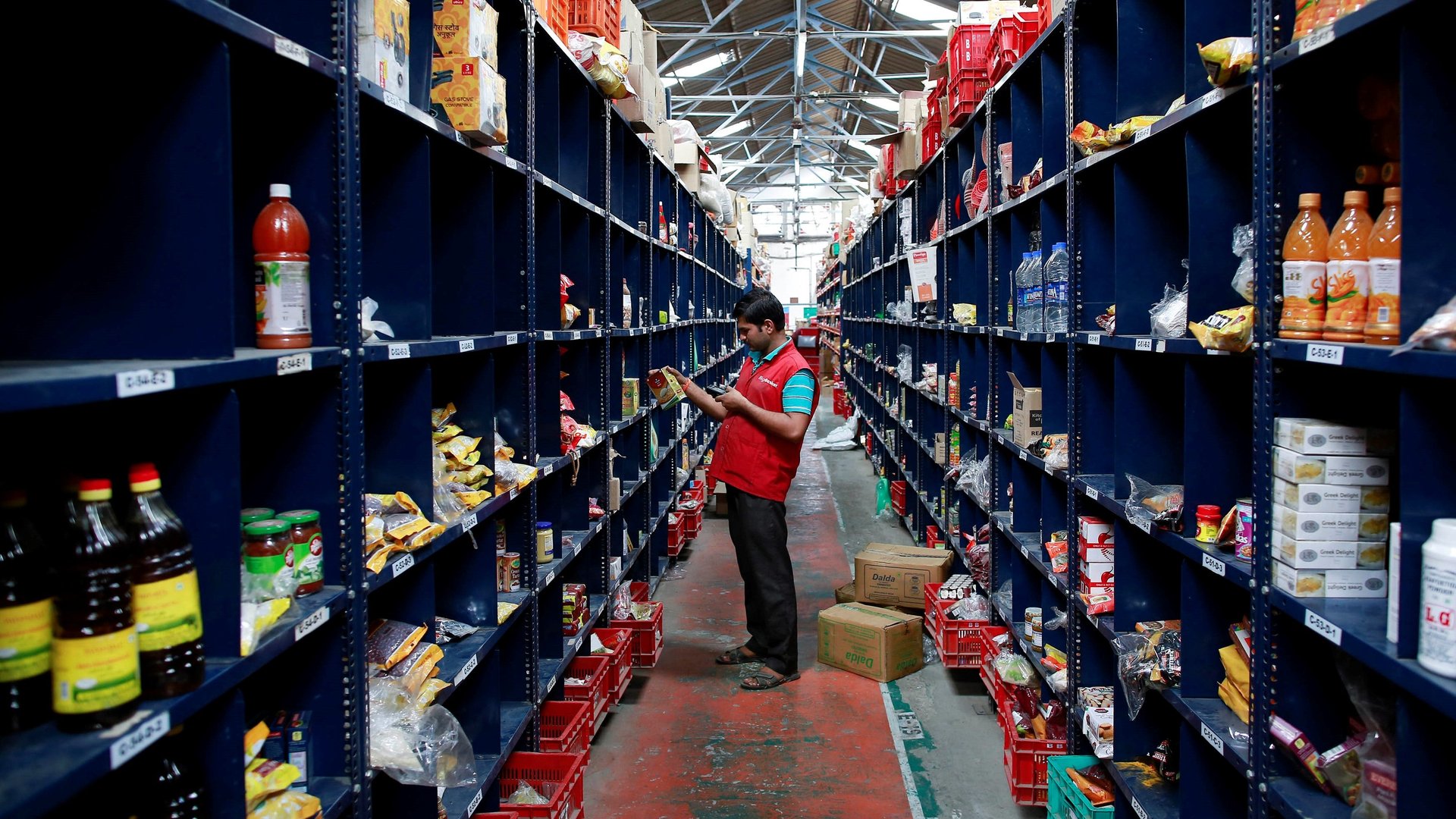How India’s food and grocery startups staged a comeback after initial Covid-19 blues
India’s online food and grocery delivery companies have witnessed the best of times and the worst of times in recent weeks.


India’s online food and grocery delivery companies have witnessed the best of times and the worst of times in recent weeks.
The coronavirus lockdown, which began on March 25, threw up a massive opportunity for these businesses as Indians flocked to the internet to meet their daily needs. But, most of these companies struggled to benefit from this heightened demand as their supply chains fell apart due to a shortage of delivery staff and challenges with local authorities.
“The shortage of staff hit us hard,” Hari Menon, co-founder and CEO of e-grocer BigBasket, said during a webinar last week. “Our migrant workers left for their hometowns in the ensuing panic created by the lockdown. Our operational capacity was reduced to 50%.”
In recent weeks, however, companies like BigBasket, online meats brand Licious and idli/dosa batter manufacturer iD Fresh Food, among others, have overcome these challenges by rethinking their strategies and coming up with innovative solutions. Here’s what transpired at their offices and warehouses in the last four weeks:
Licious: New partnerships for new challenges
In the first week of the lockdown, the Bengaluru-based online meat and seafood company struggled to deliver orders on time as 300 of its 500 executives stopped coming in to work.
This in-house delivery fleet had been Licious’s strength in the past as it helped ensure a superior customer experience. But as soon as the company realised it wasn’t working, it switched to an alternative delivery model.
“To continue fulfilling business orders, we tied-up with third-party logistics providers like Yulu and Shadowfax,” said Vivek Gupta, founder of Licious.
The company also stepped up hiring to fill up openings. Licious has hired 300 people in the past 20 days.
iD Fresh Food: Lean on tech
The ready to eat food products company saw long queues outside its outlets during the lockdown, which compromised the safety of its shoppers as crowding would increase the risk of spreading coronavirus. The high demand also meant its stores were frequently running out of supplies.
So, the company relied on technology to make life easier for its shoppers and store staff.
“Within four days of the lockdown, we launched an online store finder. Customers can search for stores that are open in their vicinity online. They can also check stock availability and receive SMS alerts when fresh products arrive,” said PC Musthafa, co-founder and CEO of iD Fresh Food.
To effectively utilise its delivery staff, the company also started taking consolidated orders from residential welfare societies, instead of making individual deliveries.
Delhivery: Data to the rescue
The Gurugram-based third-party logistics startup pressed its data science team into action to identify optimal routes and keep track of containment zones, which were increasing in number even as its delivery personnel set out to fulfil orders.
The company also reached out to local police forces in the first six days of the coronavirus lockdown to get necessary permissions for facilitating an easy movement of goods. “Early on, the information on the ground was sketchy and hard to verify. We undertook a massive exercise to update local police personnel about our inventory,” said Sahil Barua, co-founder, Delhivery. “All this helped us in moving goods smoothly not only within a city but it also aided intercity movement of goods. We are also going for software automation in our warehouses,” he added.
BigBasket: A community commitment
Like iD Fresh Food, BigBasket has also moved to a community selling model where it is asking apartment complexes to put orders together for their residents. This helps the company meet consumers’ demand despite having a lower-than-usual workforce. “Earlier, our delivery boys would visit an apartment to make deliveries three to four times in the same locality/apartment. Now, they go for deliveries three times a week,” said Menon.